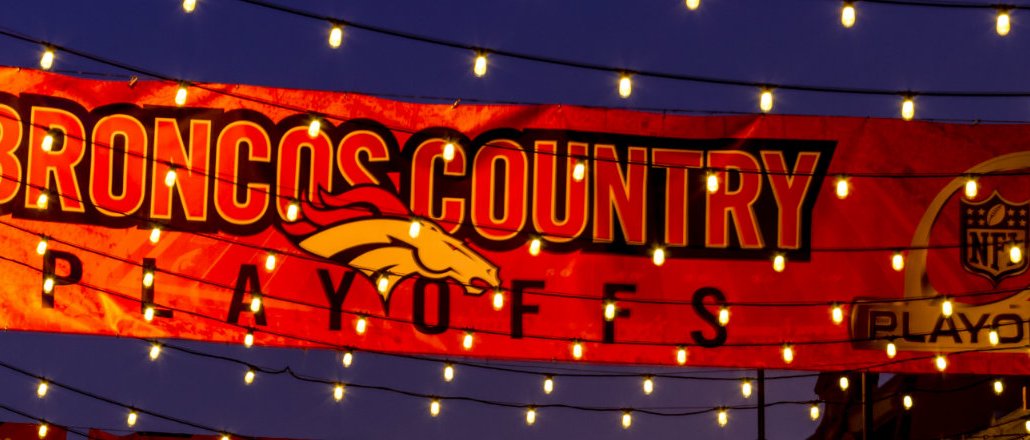Save 50% on a 3-month Digiday+ membership. Ends Dec 5.

Live video on Facebook is proving to be a magnet for publishers of all types — including a pro football franchise fresh off a Super Bowl win.
The Denver Broncos started experimenting with Facebook live streaming as the team began its playoff run in January. As with MLB teams during spring training, the Broncos’ use of Facebook live video involved bringing fans behind the scenes. For instance, it provided a behind-the-scenes look at the live programming the team regularly provides on its website. In the week before the Super Bowl, the team also aired Facebook Live versions of player interviews.
Facebook live videos of the player interviews got anywhere from 10,000 to as many as 80,000 live viewers, said Ben Hunt, director of digital media for the Broncos, which encouraged him to pursue live video at greater scale. While it’s still early days for Facebook Live, so numbers are hard to come by, publishers that have embraced the format have seen anywhere from a few thousand to 20,000 live viewers.
An opportunity arrived a month after the Broncos’ Super Bowl win, when quarterback Peyton Manning announced his retirement. His announcement, as well as statements made by Broncos president and CEO Joe Ellis, evp of football operations John Elway and head coach Gary Kubiak, were all live streamed on the Broncos’ website and mobile app. They were also carried by several sports TV networks. But for its fans who might have been on Facebook at the time, the Broncos were ready: The team set up an iPad right in the middle of the room and live streamed all of the speeches.
Within a day, these two videos to reached 2.2 million people on Facebook (Facebook’s metric for how many people saw the live post on their news feeds). The video of team executives has had nearly 580,000 views to date, while Manning’s speech has had close to 980,000. Nearly a million of those people actually watched at least a part of the videos live, according to Hunt. “We had so many fans thanking us for posting it to Facebook,” he said.
With the NFL off-season underway, the Broncos expect to do more live content on Facebook. The team doesn’t plan to do regularly scheduled live programming on the platform yet, but it sees an opportunity in going live during the NFL draft and team-sanctioned off-season training sessions. Interviews with new draft picks and free-agent signings are also a ripe area for the format.
“If we took an interview with Demaryius Thomas and posted that as an on-demand [Facebook] video, it’s going to perform well,” said Hunt. “Now is it going to perform as well as reaching up to 2.2 million people within in hour? Probably not.”
Ad position: web_incontent_pos1
These efforts will be handled by the Broncos’ nine-person digital team, which includes a social media coordinator.
“When we’re live streaming [on the Broncos’ site], we have a multi-camera shoot with multiple people and on-air talent working on it,” said. “[Facebook Live] is a very simple way to show live content with a smaller footprint of resources.”
It also helps that the Broncos are the sixth-most-followed NFL-oriented Facebook page, with more than 4.3 million fans. The audience is also engaged. According to Hunt, the Broncos saw more than 40 million engagements (likes, comments and shares) from August to February. The team puts up an average of 18 Facebook posts per day.
“We are very much in tune with our Facebook audience, and we like to supply it with as much as we can,” said Hunt.
Image via Teri Virbickis/Shutterstock.com
More in Media

What publishers are wishing for this holiday season: End AI scraping and determine AI-powered audience value
Publishers want a fair, structured, regulated AI environment and they also want to define what the next decade of audience metrics looks like.

Digiday+ Research Subscription Index 2025: Subscription strategies from Bloomberg, The New York Times, Vox and others
Digiday’s third annual Subscription Index examines and measures publishers’ subscription strategies to identify common approaches and key tactics among Bloomberg, The New York Times, Vox and others.

From lawsuits to lobbying: How publishers are fighting AI
We may be closing out 2025, but publishers aren’t retreating from the battle of AI search — some are escalating it, and they expect the fight to stretch deep into 2026.
Ad position: web_bfu